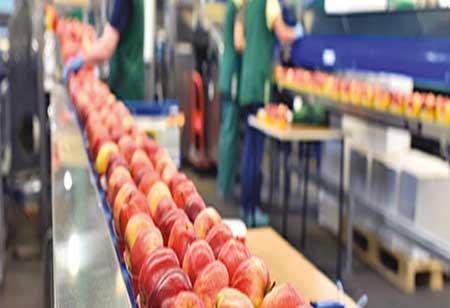THANK YOU FOR SUBSCRIBING
By Guillaume Couture, Quality Director at Kerry Inc.
Guillaume Couture: Safeguarding Quality and Safety in the...
By Michelle Brydalski, Vice President, Food Safety, Quality Assurance, Charcuterie Artisans
Listeria Control in a Ready to Eat (RTE) Environments
By Juan F. DeVillena, Sr. Vice President of Quality Assurance and Food Safety at Wayne-Sanderson Farms
The Micro Revolution In the U.S.
By Mauricio Jaramillo, Food Service Director, SAGE Dining Services
Upskilling, the Key to Addressing the Emerging Challenges...

Food Safety Recalls: Unraveling the Impact on Consumer Trust, the Industry, and a Sustainable Food Safe Future
Naomi Theunissen, Director of Food Safety, The Star Group

 Naomi Theunissen, Director of Food Safety, The Star Group
Naomi Theunissen, Director of Food Safety, The Star GroupRecently, a friend asked me about a food safety recall. It had been in the news that people had died, and she was concerned for herself and her family. Her daughter loves a particular food, but she has not been buying any for fear it would make them ill. Her fear is understandable, as, according to the World Health Organization, an estimated 600 million people suffer from foodborne illnesses, and approximately 420,000 deaths are attributed to foodborne illnesses every year. Proper traceability and effective recalls are essential for protecting consumers against foodborne illnesses. Recalls can, however, have unintended and far-reaching consequences.
Consumer trust is a cornerstone of the food industry, and recalls can significantly erode this trust, prompting shifts in consumer behavior. The complexity of modern food supply chains often leaves consumers unable to discern between safe and unsafe products. Consequently, a consumer may avoid all similar products out of caution, regardless of origin.
This ripple effect extends to manufacturers in the supply chain, who may seek alternatives to the impacted foods to avert potential rejection by consumers.
The panic and erosion of trust stemming from a food safety recall can lead to intense competition and market saturation. Suppliers of short-shelf-life products, such as fresh produce, face substantial financial losses as they struggle to sell products before expiration. Disposing of large quantities of unusable or unsellable items further adds to these financial setbacks, and smaller growers may find it challenging to weather such economic storms.
"Some industry members advocate for enhanced messaging and consumer education to mitigate the negative impact on consumer perception post-recall"
Some industry members advocate for enhanced messaging and consumer education to mitigate the negative impact on consumer perception post-recall. Providing consumers with detailed information about the recall, including images of affected brands, names of affected stores, and the recall's effectiveness, could enhance consumer confidence. Regulators, retailers, and manufacturers could contribute by offering frequent updates on recall progress and informing consumers about food safety requirements and programs.
The best way to maintain consumer trust remains to deliver the safest products possible, and we use every tool at our disposal to avoid having to issue a recall in the first place.
At Star Produce, we prioritize food safety through a rigorous supplier approval program, frequent pesticide and microbial testing, and a test-and-hold program for high-risk commodities. Our ready-to-eat products are manufactured in a sterile, high-risk area by a dedicated, trained team. All produce entering this area undergoes washing with a food-grade sanitizing agent, ensuring a 5-log reduction of foodborne pathogens. A comprehensive sanitation program is in place to maintain facility sterility, confirmed through frequent environmental microbial testing. Finished products undergo sampling and testing for pathogens, assuring food safety.
Recalls wield a profound and intricate influence on the food industry. This leaves a lasting imprint on financial performance, brand reputation, and consumer trust in their chosen brands. Navigating the repercussions of recalls requires the industry to adopt innovation, transparency, and an unwavering dedication to rigorous safety standards. This approach is crucial for maintaining consumer trust and safeguarding the enduring sustainability of the food supply chain.
While Canada is considered to have one of the best food safety systems in the world, it is imperative that, in an age where consumers increasingly seek accountability and transparency from the food industry, the insights gained from recall experiences must serve as guiding principles. These lessons can potentially shape Canada's more resilient and responsible food industry. This will align with consumers' evolving expectations and lay the groundwork for a sustainable, food-safe future.
Read Also














